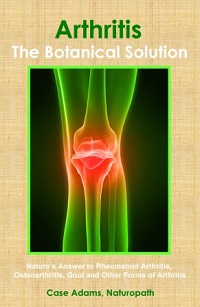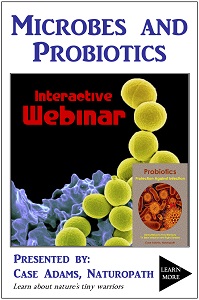Hair Loss Drugs Linked to Erectile Dysfunction
On top of new labeling requirements by the FDA, new research has found that Finasteride, the major constituent in hair loss and prostate drugs Propecia and Proscar, may cause erectile dysfunction long after the drug has been discontinued.
In this article
Majority of men suffer after stopping drug
The research, published in the Journal of Sexual Medicine, found that 96% of a group of men who took the hair loss drug Propecia and then stopped, suffered sex dysfunction for more than a year after stopping. The study interviewed and reviewed the cases of 54 men under 40 years old with more than three months of dysfunction. Of these 89% were consistent with the diagnosis of sexual dysfunction.
Sexual dysfunction includes erectile dysfunction, orgasm problems, genital pain, lowered sex drive, depression and anxiety related to sex.
While the weakness of the study is that it only utilized patients with sexual side effects after taking the drug, the study, conducted by Dr. Michael Irwig, an endocrinologist and professor of medicine at George Washington University, proved the mantra of Propecia’s manufacturer Merck and many prescribing doctors that its sexual side effects would not continue after stopping the drug, was inaccurate.
FDA label required
After numerous cases of infertility and lower sperm counts, the US Food and Drug Administration (FDA) is now requiring that labels for the baldness and prostate drugs Propecia and Proscar state that they can decrease libido, create poor semen quality and produce sexual dysfunction.
The FDA’s announcement comes after numerous reports had been submitted showing that these two drugs decreased sperm counts, lowered libido and caused erectile dysfunction. The FDA received 421 reports of sexual dysfunction for Propecia and 199 reports on Proscar.
The revisions announced by the FDA in late April are:
— A revision to the Propecia label to include libido disorders, ejaculation disorders, and orgasm disorders that continued after discontinuation of the drug.
— A revision to the Proscar label to include decreased libido that continued after discontinuation of the drug.
— A revision to both the Propecia and Proscar labels to include a description of reports of male infertility and/or poor semen quality that normalized or improved after drug discontinuation.
Both of these drugs contain a chemical called finasteride. The drug is considered a 5 alpha-reductase inhibitor – as it inhibits an enzyme involved in the testosterone-to-dihydrotestosterone conversion process. Propecia contains 1 milligram of finasteride while Proscar contains 5 milligrams.
Finasteride adverse effects
Adverse effects seen in clinical studies of finasteride outside of erectile dysfunction and ejaculation disorder include impotence (up to 18%), abnormal ejaculation (up to 7%), the development of large breasts, (nearly 3%), anxiety and depression.
In other words, synthetically inhibiting 5α-reductase does more than lower the conversion of testosterone to 5α-dihydrotestosterone (DHT). It also deprives the body of the androgen balance necessary for mood, natural sexual function and energy levels.
Testosterone and DHT
Research has shown that later in life, as testosterone levels drop for men, DHT levels can rise as a result of increased oxidative stress and poor lifestyle and dietary choices. Numerous studies, in fact, have illustrated the link between oxidative stress and high DHT levels. For this reason, many medical scientists consider DHT a marker for oxidative stress.
This was illustrated in a study from the University of Connecticut School of Medicine. Researchers tested 1,083 Caucasian men, of which 531 men had symptoms of alcohol dependence. The results found that alcohol dependence and oxidative stress were both related to lower testosterone levels and higher DHT levels.
Earlier this year a study on periodontal disease found that heightened lipopolysaccharide levels, a byproduct of bacteria – in this case periodontal disease bacteria – was associated with higher levels of DHT and oxidative stress.
Several studies over the past decade have showed that DHT levels can be reduced with natural foods and supplements.
For example, studies have shown that a phytonutrient found in grains and beans called equol can significantly reduce DHT levels. Equol is an isoflavone and the primary metabolite of daidzein. Many beans and grains contain daidzein, and soybeans are a significant source of the nutrient.
Isoflavone-containing foods have also been shown to help balance women’s estrogen levels.
In a 2005 crossover study on 37 men with increasing PSA levels and prostate cancer, a supplement containing phytoestrogens, antioxidants, selenium and other ingredients (called verum) significantly decreased DHT levels.
Herbs for lowering DHT
Herbs such as saw palmetto (Serenoa repens) have also been shown to naturally lower DHT levels. Saw palmetto inhibits 5α-reductase but it also blocks DHT receptors on cell membranes. A 2002 alopecia study of ten balding males found that a combination of saw palmetto and beta-sitosterol resulted in 60% of the men showing significant hair regrowth.
Another recent study showed that saw palmetto blocked LPS-related inflammation as well as lowered DHT levels. This was seen to be related to oxidative stress as well as inhibiting 5 alpha-reductase. Numerous studies have shown saw palmetto successful in reducing prostate enlargement, with none of the side effects seen with finasteride.
Other herbs also reduce DHT levels according to other research.
The synthetic blocking of DHT through the alpha-reductase inhibitor finasteride is reminiscent of the cyclooxygenase-2 (COX-2) enzyme inhibitors such as Vioxx, which was removed from the market because of its increasingly evident side effects leading to heart attacks. The issue is similar because synthetically blocking a complex enzyme process in an isolated manner has repercussions that eventually play out.
Nature, on the other hand, can accomplish hormone balance without side effects. With the right combination of diet, lifestyle and medicinal herbs – as selected by ones personal (natural) physician – nature can produce a whole-body metabolic balance. This is because nature is smarter.
REFERENCES:
Irwig MS. Persistent Sexual Side Effects of Finasteride: Could They Be Permanent? Jnl Sex Med. 12 JUL 2012 | DOI: 10.1111/j.1743-6109.2012.02846.x
Kuehn BM. Prostate, baldness drugs linked to sexual dysfunction. JAMA. 2012 May 9;307(18):1903.
Milivojevic V, Kranzler HR, Gelernter J, Burian L, Covault J. Variation in genes encoding the neuroactive steroid synthetic enzymes 5α-reductase type 1 and 3α-reductase type 2 is associated with alcohol dependence. Alcohol Clin Exp Res. 2011 May;35(5):946-52.
Iglesias-Gato D, Carsten T, Vesterlund M, Pousette A, Schoop R, Norstedt G. Androgen-independent effects of Serenoa repens extract (Prostasan®) on prostatic epithelial cell proliferation and inflammation. Phytother Res. 2012 Feb;26(2):259-64.
Kranse R, Dagnelie PC, van Kemenade MC, de Jong FH, Blom JH, Tijburg LB, Weststrate JA, Schröder FH. Dietary intervention in prostate cancer patients: PSA response in a randomized double-blind placebo-controlled study. Int J Cancer. 2005 Feb 20;113(5):835-40.
Setchell KDR, Cassidy A. Dietary isoflavones: biological effects and relevance to human health. J Nutr 1999 129:758-767
Prager N, Bickett K, French N, Marcovici G. A randomized, double-blind, placebo-controlled trial to determine the effectiveness of botanically derived inhibitors of 5-alpha-reductase in the treatment of androgenetic alopecia. J Altern Complement Med. 2002 Apr;8(2):143-52.
Tilakaratne A, Soory M. Osteoblastic responses to LPS, glucose-oxidised LDL and minocycline: therapeutic targets for periodontal and cardiometabolic diseases. Recent Pat Endocr Metab Immune Drug Discov. 2012 Jan;6(1):73-84.
Lund TD, Munson DJ, Haldy ME, Setchell KD, Lephart ED, Handa RJ. Equol is a novel anti-androgen that inhibits prostate growth and hormone feedback. Biol Reprod. 2004 Apr;70(4):1188-95. Epub 2003 Dec 17.



















